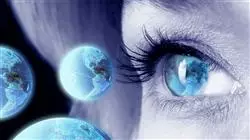University certificate
The world's largest faculty of humanities”
Why study at TECH?
The most up-to-date and sure way to access the best university specialization”

Throughout this Postgraduate Diploma, students will learn the philosophical approaches to the theory of science, language and bioethics. Three areas of outstanding relevance for their ability to provide answers to many of the questions posed by philosophy regarding evolution and human development.
With a broad vision of each of these areas of knowledge, students will learn to systematically analyze, understand and disseminate this knowledge.
A complete compendium of knowledge and developments that will lead to the highest standards of professional training, with the competitiveness of an expert in this field of work.
This program will also teach students the most effective systems to study this subject.
If students want to improve themselves, achieve a positive change on a personal level, relate to the best and belong to the new generation of professionals capable of working anywhere in the world, this may be their path.
A Postgraduate Diploma that is fully compatible with other work, personal, teaching or study occupations. Its system and teaching approach will flexibly adjust to student needs from beginning to end throughout the course. Consequently, the results are much more efficient since the study will not become an unbearable burden, but rather, a stimulating and easy challenge to undertake and bring to fruition.
This program will allow you to grow as a professional in philosophy and as a humanist, significantly expanding your capacity for analysis and philosophical understanding”
This Postgraduate diploma in Theory of Science, Language and Bioethics contains the most complete and up-to-date scientific program on the market. The most important features include:
- Practical cases to apply the theoretical content to real life situations
- The graphic, schematic, and eminently practical contents with which they are created provide scientific and practical information on the disciplines that are essential for professional practice
- It contains practical exercises where the self-evaluation process can be carried out to improve learning
- Algorithm-based interactive learning system for decision-making in the situations that are presented to the student
- Special emphasis on practical learning
- All of this will be complemented by theoretical lessons, questions to the expert, debate forums on controversial topics, and individual reflection assignments
- Content that is accessible from any fixed or portable device with an Internet connection
Study with the greatest University in the technological era and you will be part of an entity with a vocation of service, aware of the current social, global and individual in particular”
TECH Global University offers the most innovative, creative and distinctive proposal, in a dynamic, talented and internationally recognized institution. With a space to exchange ideas, experience and reflections. Students will be able to share their learning experience, through forums and other collaborative tools, all 100% online.
TECH supports its students at all times thanks to an involved and committed teaching staff. The teaching team transmits their expertise in their professional performance, working from a real, lively and dynamic context. Above all, TECH explores students’ critical side, their ability to question things, their problem-solving skills, as well as their interpersonal skills.
This Postgraduate diploma is created to make you study in a simple, efficient and flexible way, with the maximum quality of a high-level academic program"

Study with the technical and human solvency of the largest Spanish-speaking, 100% online university in the world"
Syllabus
This complete instructional development will lead students to acquire the most comprehensive knowledge available, bringing them closer to excellence in the humanistic field. The syllabus has been designed following the criteria of high academic impact this Postgraduate Diploma has, and the new teaching approaches that aim to maintain motivation and interest, which are essential to achieving the learning objectives. A high quality teaching model that sets TECH apart.

A comprehensive teaching program that will take you through the development of this philosophical area, revealing its functioning and practical routines in a totally flexible way”
Module 1. Philosophy of Science
1.1. Characterization and Brief History of Science and Technology
1.1.1. Toward a Definition of Science
1.1.2. Toward a Definition of Technique
1.1.3. Brief History of Science, Technique and Technology
1.2. The Nature of science
1.2.1. Attitudes toward Science
1.2.2. The Development of Philosophy of Science
1.2.3. Main Current Trends in the Philosophy of Science
1.2.4. Nature, Diversity and Complexity in Science
1.3. Scientific Methods
1.3.1. Formal Methods in Science
1.3.2. Pragmatism as Technological Criteria
1.3.3. Discovery and Justification in Science
1.3.4. Scientific Revolutions and Changes
1.4. Scientific and Technological Constructions
1.4.1. Concepts, Statements and Scientific Theories
1.4.2. Technology and World Transformation
1.5. The Value of Science and Technique
1.5.1. Contemporary Discussions on Truth and Objectivity in the Sciences
1.5.2. The Debate over Science and Values
1.5.3. The End of Scientific Hegemony: Technology and Science
Module 2. Philosophy of Language
2.1. Introduction
2.1.1. Language as Human Fact
2.1.2. The Philosophical Study of Language
2.2. The Linguistic Sign: Semiotics
2.2.1. Sign Theory
2.2.2. Signs, Concepts and Things
2.3. Meaning: Semantics
2.3.1. The Problem of Meaning
2.3.2. Meaning in Recent Philosophy of Language
2.3.3. Language and Truth
2.4. The Signifying Act: Pragmatics
2.4.1. Meaning and Language Use
2.4.2. Language and Communication
2.5. The Theory of Interpretation: Hermeneutics
2.5.1. Hermeneutic Philosophy and Language
2.5.2. Understand and Interpret
2.6. The Theory of Religious Language
2.6.1. The Meaning of Religious Discourse
2.6.2. The Pragmatics of Religious Language
Module 3. Seminar on Bioethical Problems
3.1. What Is Bioethics?
3.1.1. Brief History
3.1.2. The Concept of Bioethics
3.1.2.1. Definition, Method and Approach in Bioethics
3.1.3. Branches in Bioethics
3.1.3.1. The Biomedical Sector
3.1.3.2. The Biotechnological Sector
3.1.3.3. The Extra-Human Sector
3.2. Main Current Trends in Bioethics and Relevant Bioethic Principles
3.2.1. Current Trends in Bioethics
3.2.1.1. Principlism
3.2.1.1.1. Prima Facie Principles (Beuchamp and Childress)
3.2.1.1.2. Diego García’s Moderate Principlism
3.2.1.2. Utilitarianism and Functionalism
3.2.1.3. Contractualism
3.2.1.4. Ethics of Minimum
3.2.1.5. Liberal Trend
3.2.1.6. Ethics of Care
3.2.1.7. Narrative Ethics
3.2.1.8. Bioethical Casuistry
3.2.1.9. Personalism with an Ontological Foundation
3.2.2. Relevant Moral Principles
3.2.2.1. The Lesser Evil
3.2.2.2. The Principle of Double Effect or Indirect Voluntariness
3.2.2.3. The Slippery Slope Effect
3.2.2.4. Technological Imperative and Environmental Ethics
3.3. Different Deliberative Methodologies to Address Bioethical Problems
3.3.1. Case Analysis
3.3.2. Analysis Methods for Decision-Making
3.3.2.1. The Principlist Method
3.3.2.2. Jonsen’s Method of Case Analysis in Clinical Ethics
3.3.2.3. Diego García’s Decision-Making
3.3.2.4. Thomasma’s Decision-Making
3.3.2.5. Galveston’s Procedure
Module 4. Philosophical Synthesis
4.1. Metaphysics
4.1.1. The Nature of Metaphysics
4.1.2. The Dynamism of Being
4.1.3. Casual Dynamism
4.1.4. The Statics of Being
4.1.5. The Transcendental Properties of Being
4.1.6. The Classification of Being
4.1.7. The Participation and Analogy of Being
4.2. Philosophy of Nature
4.2.1. The Nature of the Treaty
4.2.2. The Intelligibility of Nature
4.2.3. The Structure of Nature
4.2.4. The Origin and Meaning of Nature
4.3. Philosophical Anthropology
4.3.1. The Nature of Philosophical Anthropology
4.3.2. Human Life
4.3.3. The Phenomenology of Human Behavior
4.3.4. Human Knowledge
4.3.5. Human Desire
4.3.6. Human Affectivity
4.3.7. Human Unity and Dualism
4.3.8. Humans as Personal Beings
4.3.9. Dimensions of the Personal Being
4.3.10. Death and Human Transcendence
4.4. Philosophy of Knowledge
4.4.1. The Nature of Philosophy of Knowledge
4.4.2. Fundamental Perspectives in Epistemology
4.4.3. Knowledge in General
4.4.4. Perceptual Knowledge
4.4.5. Intellectual Knowledge
4.4.6. Functions, Acts and Areas of Intellectual Knowledge
4.4.7. The Truth of Knowledge and Its Discernment
4.5. Ethics
4.5.1. The Nature of Ethics
4.5.2. Human Goodness
4.5.3. The Moral Subject
4.5.4. Moral Law
4.5.5. Moral Conscience
4.5.6. Friendship Communities
4.5.7. Matters in Bioethics
4.5.8. Human Work
4.5.9. Political Society
4.6. Philosophical Theology
4.6.1. The Nature of Philosophical Theology
4.6.2. God as a Problem
4.6.3. The Existence of God
4.6.4. The Essence of God
4.6.5. God and the World
4.6.6. God and Humans
4.7. Synthetic Vision
4.7.1. Thematic and Argumentative Linking of Treaties
4.7.2. Toward a Global Vision and Harmonic Reality

A fully up-to-date program, with the most relevant and essential aspects organized in a dynamic and structured way”
Postgraduate Diploma in Theory of Science, Language and Bioethics
Delve into the exciting field of science, language and bioethics with our Postgraduate Diploma in Science Theory, Language and Bioethics Postgraduate Diploma program from TECH Global University. If you are passionate about ethics and the impact of science on our society, this online program is perfect for you. In this program, you'll explore the fundamentals of science theory, language and bioethics, delving into key topics ranging from the philosophy of science to ethical dilemmas in the field of biotechnology. Through interactive Postgraduate Certificate courses and up-to-date materials, you will gain a solid understanding of how science and language influence our understanding of the world and how we address the bioethical challenges of our era. The Postgraduate Diploma in Science Theory, Language and Bioethics will provide you with the tools you need to critically evaluate scientific and technological advances and make informed, ethical decisions in biomedicine and scientific research.
Enroll now and start advancing on your career path.
At TECH Global University, we understand the importance of providing quality education in a flexible and accessible format. Our Postgraduate Diploma program in Science Theory, Language and Bioethics is delivered in an online mode, allowing you to study from anywhere and at any time that fits your lifestyle. Don't miss the opportunity to explore the ethical and philosophical challenges of science and language in the context of bioethics. Enroll in TECH Global University's Postgraduate Diploma program in Science Theory, Language and Bioethics and gain knowledge that will open doors in the academic and professional world - start your intellectual journey today!







